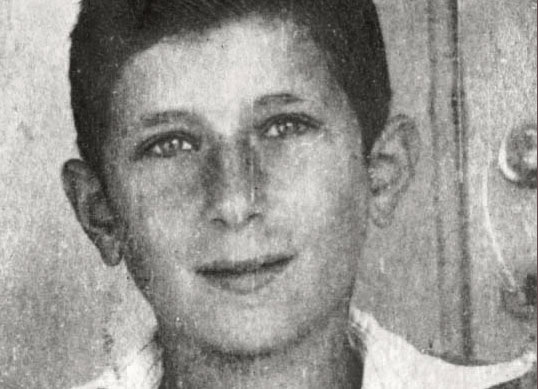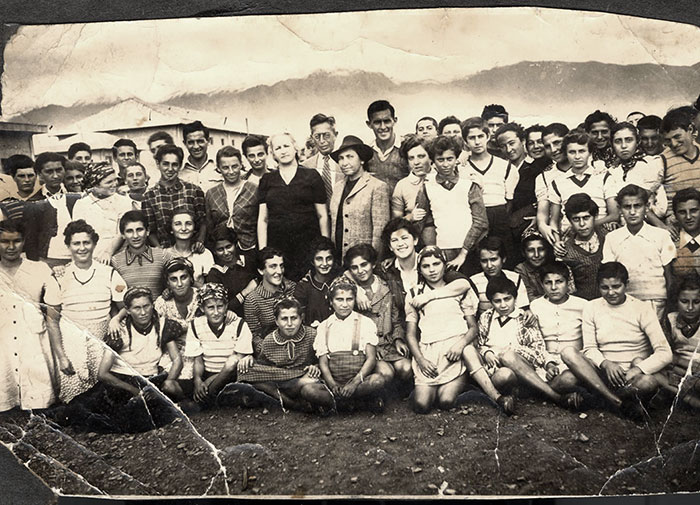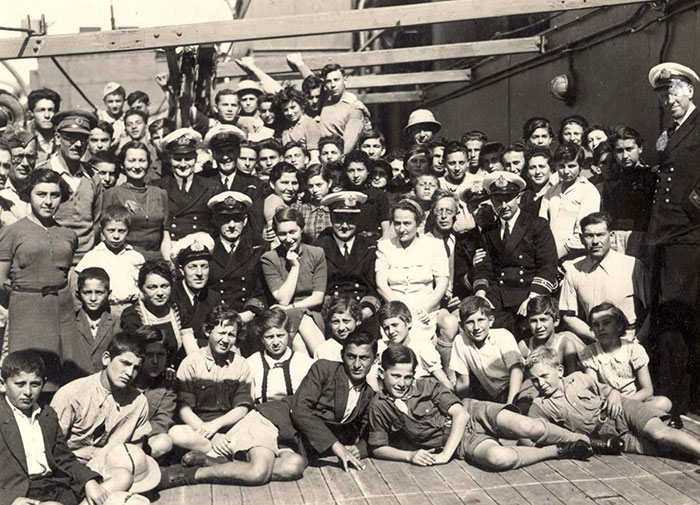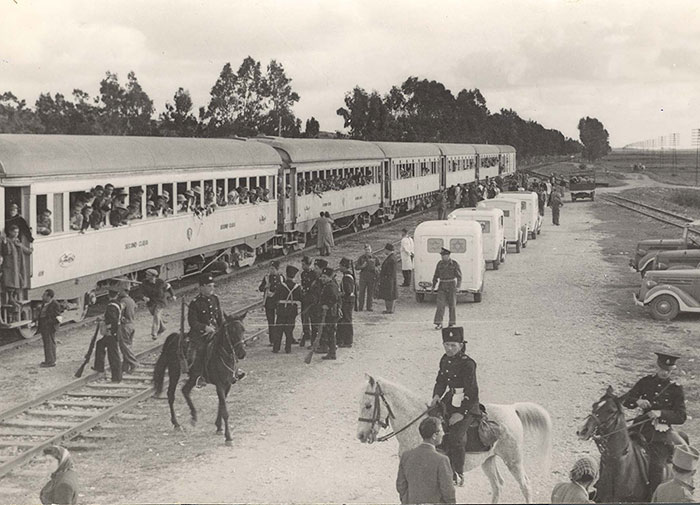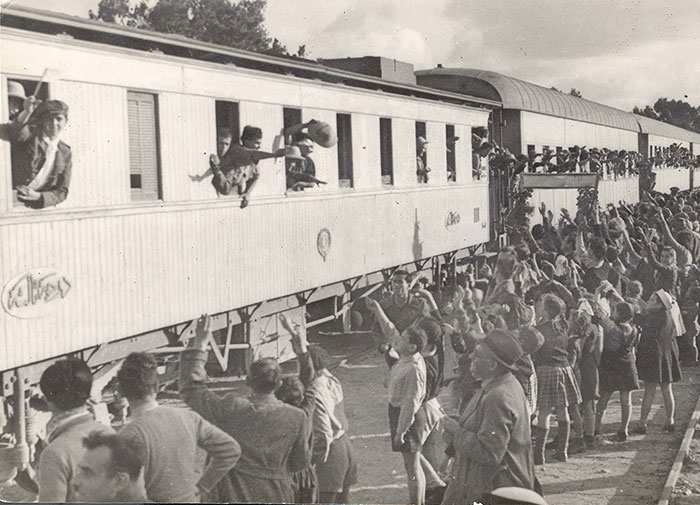Norbert Kurzmann | Natan Rom
Norbert-Natan was born in 1929 in Katowice, Poland. His parents, Karol Kurzmann and Ethel née Aron, were bourgeois and traditional, with no Zionist tendencies at all. Karol was a salesman, and the family lived comfortably. Their eldest daughter Szuzana-Ziva was born in 1926. The family spent the summer of 1939 in Szczyrk, a holiday resort in the Beskid mountains in south-west Poland, as they did every year. Two weeks before the outbreak of the war, due to the tensions between Germany and Poland, they moved to Jaroslaw, to the home of Karol’s parents. They never returned to Katowice.
After the war broke out, the Kurzmanns fled eastward together with other relatives from Jaroslaw. Deciding that the men were in the most danger, the family split up. Karol Kurzmann and his brothers, Max and Zigmund fled to Romania. The women and children, including Ethel, Ziva and Natan returned to Jaroslaw.
When Jaroslaw was occupied by the Germans, the city’s Jews were robbed and abused, and enlisted for forced labor. On the eve of the Jewish holiday of Sukkot, 29 September 1939, the Jews were gathered and ordered to leave the city immediately. They had to cross over the River San to the east bank, which was controlled by the Soviets. The eviction was carried out while robbing, beating and shooting the Jews. Ethel and her children were amongst those who crossed the river. They found refuge for the night in the barn of a local farmer. They continued on to Lwów, where they were reunited with Karol.
After about a year, Karol, Ethel and their two children were exiled to a Soviet camp in Yoshkar-Ola, on the Siberian border. Their son Stefan-Uzi was born there. Carrying their 2-week-old baby, the family continued its wanderings, reaching Samarkand via Novosibirsk. The money ran out and the Kurzmann’s situation deteriorated to the point of starvation. Natan and Ziva were placed in a Jewish orphanage. From his sick-bed, Karol told his children, “I will never see you again.” Their mother told them to stay together always, and gave them her only possession: the address of her brothers in the USA.
Ziva and Natan were evacuated together with the other children in the orphanage and reached Tehran in August 1942. There, emissaries from Eretz Israel gathered some 1000 Jewish children that had fled eastward with their families and lived a nomadic existence until reaching Tehran in various ways. In February 1943, these children – the Tehran Children – reached Eretz Israel.
We arrived as “elderly children”, relates Natan. They had no idea what had happened to their parents, Karol and Ethel, and their baby brother Uzi. After a year, they managed to make contact with their mother, and discovered that their father had perished in Samarkand. Ethel and Uzi returned to Katowice, lived in DP camps, travelled to Belgium to visit Ethel’s brother who had survived, and in 1948, the family was reunited in Israel.
Recalling the reunion with his mother, Natan relates:
“I had forgotten my German… I only spoke Hebrew…I was grown up, a soldier, and I came to meet my mother and this boy [Uzi], and we had no language in common… I could only stutter in German. We had not seen Mother and Uzi for five years…. and all I could do was stutter… There was communication, but not connection.”
Ziva settled in Kibbutz Hatzerim, Natan in Kibbutz Afikim, and they both started families. They kept in contact with their mother and brother, and the three siblings – Natan, Ziva and Uzi – changed the family name to Rom.
